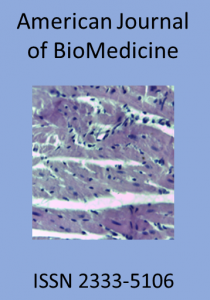
Abstract
Sepsis, the third most common cause of death worldwide, is associated with myocardial depression, one of the most common organ dysfunctions in sepsis. n this study, we found that miRNA-486 was significantly down-regulated in septic mice and miR-486 over-expression significantly up-regulated the IRE1/JNK pathway, resulting in increased autophagy and apoptosis. In our previous study, miR-486 has been shown to be a protective factor in sepsis overdose and the expression was significantly down-regulated, indicating that miR-486 is a sensitive responder in sepsis and may be an important indicator for the diagnosis and prognosis of sepsis. provided the first evidence that the expression of miR-486 in human macrophages (THP-1) was up-regulated after stimulation with lipopolysaccharide (LPS) (1 µg/mL). explored the expression profile of some miRNAs in bone marrow-derived macrophages (BMDMs) in LPS-induced sepsis mice using RT-PCR. The primary finding in our study is that in vivo over-expression of miR-486 depressed the myocardial function, and that miR-150 controlled the heart function in a constitutively negative manner. We had proved in SMs that miR-486 could repress Cav-1 expression, while miR-150 could inhibit calcineurin and l-type calcium channel. Calcium plays a fundamental role in the heart, and sepsis causing the imbalance of calcium ultimately leads to myocardial depression. Regulations of these related calcium signaling pathways also confirm and explain how miR-486 and miR-150 have a negative effect on myocardial function. These findings provide proof in mouse myocardial intramyocardial overexpression of miRs (miR-486, miR-150) in its decrease heart contractile function. Inconclusion, miR-486 and miR-150 play a protective role in sepsis-induced myocardial depression by inhibiting renin-angiotensin-aldosterone system dependent autophagy. This study may contribute to developing novel therapeutic strategies for favorably regulating miR-486 or miR-150 expression in sepsis-induced myocardial depression.
Keywords: Myocardial depression; Biomarkers; mRNA; Sepsis
Copyright © 2017 by The American Society for BioMedicine and BM-Publisher, Inc.
References
- Tang BM, Eslick GD, Craig JC, McLean AS. Accuracy of procalcitonin for sepsis diagnosis in critically ill patients: systematic review and meta-analysis. Lancet Infect Dis 2007;7:210-217.
https://doi.org/10.1016/S1473-3099(07)70052-X - White HD, Chew DP. Acute myocardial infarction. Lancet 2008;372(9638):570-584.
https://doi.org/10.1016/S0140-6736(08)61237-4 - Plasterk RH. Micro RNAs in animal development. Cell 2006;124(5):877-881.
https://doi.org/10.1016/j.cell.2006.02.030 - Meltzer PS. Cancer genomics: small RNAs with big impacts. Nature 2005;435(7043):745-746.
https://doi.org/10.1038/435745a - van Empel VP, De Windt LJ, da Costa Martins PA. Circulating miRNAs: reflecting or affecting cardiovascular disease? Curr Hypertens Rep 2012;14(6):498-509.
https://doi.org/10.1007/s11906-012-0310-7 - Prabhu SD. Cytokine-induced modulation of cardiac function. Circ Res 2004; 95:1140-1153.
https://doi.org/10.1161/01.RES.0000150734.79804.92 - Kloosterman WP, Plasterk RH. The diverse functions of microRNAs in animal development and disease. Dev Cell 2006;11(4):441-450.
https://doi.org/10.1016/j.devcel.2006.09.009 - Akira S, Takeda K, Kaisho T. Toll-like receptors: critical proteins linking innate and acquired immunity. Nat Immunol 2001; 2:675-680.
https://doi.org/10.1038/90609 - Kumar A, Haery C, Parrillo JE. Myocardial dysfunction in septic shock. Crit Care Clin 2000;16:251-287.
https://doi.org/10.1016/S0749-0704(05)70110-X - Peitzman AB, Udekwu AO, Ochoa J, Smith S. Bacterial translocation in trauma patients. J Trauma 1991;31:1083-1086.
https://doi.org/10.1097/00005373-199131080-00006 - Mann DL. Inflammatory mediators and the failing heart: past, present, and the foreseeable future. Circ Res 2002;91:988-998.
https://doi.org/10.1161/01.RES.0000043825.01705.1B - Slimani H, Zhai Y, Yousif NG, et al. Enhanced monocyte chemoattractant protein-1 production in aging mice exaggerates cardiac depression during endotoxemia. Crit Care. 2014;18(5):527.
https://doi.org/10.1186/s13054-014-0527-8 - Crabhu SD, Chandrasekar B, Murray DR, Freeman GL. β-Adrenergic blockade in developing heart failure: effects on myocardial inflammatory cytokines, nitric oxide, and remodeling. Circulation 2000;101:2103-2109.
https://doi.org/10.1161/01.CIR.101.17.2103 - Kanda T, McManus JE, Nagai R, et al. Modification of viral myocarditis in mice by interleukin-6. Circ Res 1996;78:848-856.
https://doi.org/10.1161/01.RES.78.5.848 - Tracey KJ, Fong Y, Hesse DG, et al. Anti-cachectin/TNF monoclonal antibodies prevent septic shock during lethal bacteramia. Nature 1987; 330: 662-664.
https://doi.org/10.1038/330662a0 - Okusawa S, Gelfand JA, Ikejima T, Connolly RJ, Dinarello CA. Interleukin-1 induces a shock-like state in rabbits. Synergism with tumor necrosis factor and the effect of cyclooxygenase inhibition. J Clin Invest 1988;81:1162-1172.
https://doi.org/10.1172/JCI113431 - Simms MG, Walley KR. Activated macrophages decrease rat cardiac myocyte contractility: importance of ICAM-1-dependent adhesion. Am J Physiol 1999;277:H253-H260.
https://doi.org/10.1152/ajpheart.1999.277.1.H253 - Mitchell PS, Parkin RK, Kroh EM, et al. Circulating microRNAs as stable blood-based markers for cancer detection. Proc Natl Acad Sci USA 2008;105(30):10513-10518.
https://doi.org/10.1073/pnas.0804549105 - Yousif NG, Al-Amran FG. Novel Toll-like receptor-4 deficiency attenuates trastuzumab (Herceptin) induced cardiac injury in mice. BMC Cardiovasc Disord 2011;11:62.
https://doi.org/10.1186/1471-2261-11-62 - Häntzsch M, Tolios A, Beutner F, et al. Comparison of whole blood RNA preservation tubes and novel generation RNA extraction kits for analysis of mRNA and MiRNA profiles. PLoS One 2014;9(12).
https://doi.org/10.1371/journal.pone.0113298 - Rainen L, Oelmueller U, Jurgensen S et al. Stabilization of mRNA expression in whole blood samples. Clin Chem 2002;48:1883-1890.
https://doi.org/10.1093/clinchem/48.11.1883 - Tan SC, Yiap BC. DNA, RNA, and protein extraction: the past and the present. J Biomed Biotechnol 2009;2009:574398.
https://doi.org/10.1155/2009/574398 - Wang Z, Gerstein M, Snyder M. RNA-Seq: a revolutionary tool for transcriptomics. Nat Rev Genet 2009;10:57-63.
https://doi.org/10.1038/nrg2484
Who Can Become a Reviewer?
Any expert in the article's research field can become a reviewer with American Journal of Biomedicine. Editors might ask you to look at a specific aspect of an article,...
How to cite this article
Thron R, Andersson T,Lee K, Adrienne M. Critical role of microglia in the inflammatory response after spinal injury. American Journal of BioMedicine 2017;5(4):267–281
Research Article
1. Abstract
2. Keywords
3. Introduction
5. Results
6. Discussion
7. References



